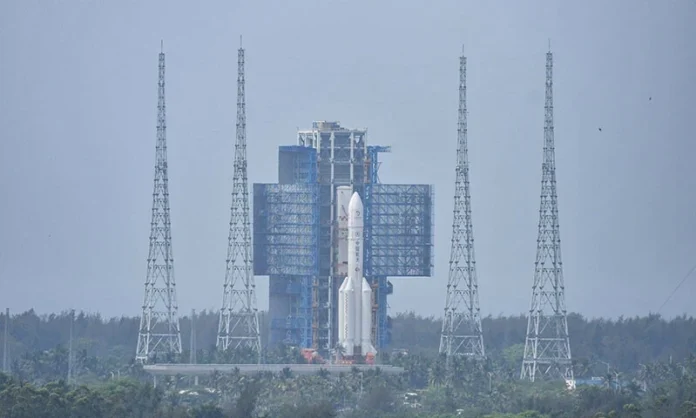Pakistan moon mission launched on Friday. Lunar mission (2024) Stay updated on the latest news and developments in space exploration.
Lunar mission (2024)
In a monumental step toward advancing its space capabilities, Pakistan is set to launch the iCube-Q satellite as part of the eagerly anticipated Pakistan Moon Mission. This significant event marks a historic collaboration between Pakistan’s Institute of Space Technology (IST), China’s SJTU Shanghai University, and the national space agency, Suparco. The launch is scheduled for May 3 at 12:50 PM from Hainan, China, aboard the esteemed Chang’e 6 lunar probe.
Table of Contents
Pakistan Moon Mission Launched on Friday
Launch Details and Collaborative Efforts
The collaboration has yielded the ICUBE-Q satellite, a cutting-edge CubeSat designed for lunar exploration. This initiative is part of the ongoing Chinese lunar missions, with Chang’e 6 being the latest in this ambitious series. These missions aim to explore the less-studied far side of the Moon, providing invaluable data back to Earth for further analysis.
Technological Advancements and Satellite Capabilities
The ICUBE-Q has dual optical cameras designed to capture high-resolution images of the lunar surface, contributing to our understanding of its topography and mineral composition. After rigorous testing and qualification, the iCube-Q was successfully integrated with the Chang’e 6 mission, setting the stage for a groundbreaking journey.
Broadcasting and Live Coverage
Ensuring global participation and transparency, the launch will be broadcast live. Enthusiasts and scholars alike can join the IST’s website and follow their social media platforms to witness this monumental event live.
Mission Objectives and Significance
The primary objectives of deploying the iCube-Q satellite extend beyond simple lunar exploration. CubeSats like iCube-Q are small, cube-shaped satellites that perform a plethora of functions, from Earth observations to advanced technological demonstrations. Their relatively low cost and modular design make them ideal for scientific and educational missions, democratizing space exploration and allowing more entities to participate in these ambitious ventures.
Imran Khan Biography, Prime Minister Cricket, News, Politics
The Global Context and Broader Implications
The launch of iCube-Q underlines Pakistan’s commitment to becoming a key player in the international arena of space research and exploration. This mission not only enhances the technological partnership between Pakistan and China but also places Pakistan on the map alongside other pioneering nations such as India, which achieved a similar milestone with its lunar mission to the Moon’s south pole.

Conclusion
The Pakistan Moon Mission, with the launch of ICUBE-Q, represents a significant leap forward in technology and international collaboration. As Pakistan ventures into the realms beyond our Earth, the ICUBE-Q mission through Chang’e 6 promises to bring a wealth of knowledge, fostering scientific curiosity and innovation. This mission stands not just as a testament to human ingenuity but also as a beacon of hope for future missions, encouraging a deeper understanding of the universe we inhabit.







